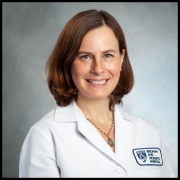
Mandy Brown Belfort, MD, MPH
Associate Professor of Pediatrics
Harvard Medical School
Mandy Brown Belfort, MD, MPH, provides neonatal intensive care as a member of the Brigham and Women’s Hospital core group of neonatologists and serves as the Director of Clinical Research in the department. She leads an NIH-funded clinical research program focused on human milk, nutrition, and preterm infant outcomes. Dr. Belfort is an Associate Professor of Pediatrics at Harvard Medical School

William Brinkman, MD, MEd, MSc, FAAP
Director, Division of General and Community Pediatrics
Carl Weihl Professor of Pediatrics
Department of Pediatrics, University of Cincinnati College of Medicine
Cincinnati Children’s Hospital Medical Center
William Brinkman, MD, MEd, MSc, FAAP, serves as the Carl Weihl Professor of Pediatrics and director of the Division of General & Community Pediatrics at Cincinnati Children’s. He leads a diverse, talented, multidisciplinary team who share a passion and commitment to transform primary care delivery and improve population health through exceptional clinical programs, high-impact clinical and translational research, innovative educational programs, and effective academic and community partnerships.
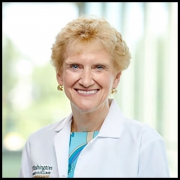
Beverly Brozanski, MD
Professor of Pediatrics, Division of Newborn Medicine
Vice Chair of Quality and Safety for the Department of Pediatrics
Washington University School of Medicine
Vice President of Pediatric Quality Improvement and Patient Safety for
BJC HealthCare and St. Louis Children’s Hospital
Beverly Brozanski, MD, is a Professor in the Washington University School of Medicine (WUSM) Department of Pediatrics, Division of Newborn Medicine and also holds appointments as the Vice Chair of Quality and Safety for the Department of Pediatrics and the Vice President of Pediatric Quality Improvement and Patient Safety for BJC HealthCare and St. Louis Children’s Hospital (SLCH). In her combined roles, Bev and her associates in the BJC HealthCare Center for Clinical Excellence, St. Louis Children’s Hospital and the Department of Pediatrics work to develop system-wide efforts in Quality Improvement and standards of care within and across disciplines as well as Pediatric initiatives throughout BJC and SLCH systems.
Bev came to WUSM and SLCH from the University of Pittsburgh School of Medicine, where she served as Professor of Pediatrics and the Medical Director of the NICU at the UPMC Children’s Hospital of Pittsburgh. She was an Institute of Healthcare Improvement advisor (IA) and Co-Leader of the Continuous Initiatives for Quality Improvement for and Chief Quality Officer of the Children’s Hospitals Neonatal Consortium (CHNC). Bev is also a member of the board and executive committee of this organization of now 47-member Children’s Hospitals dedicated to capturing data elements, practices, and outcomes for this unique population of infants cared for in Level 4 NICUs. In her IA role for CHNC, Bev organized several national and international neonatal quality improvement projects to reduce CLABSIs, improve post-operative handoffs, reduce post-operative hypothermia, erase postoperative pain and work toward zero harm in the perioperative period. These collaboratives included structured education in QI learning and team engagement directed to local center participants. Bev has also presented national workshops on the NICU handoff process.
Over the past 2 years in St Louis, Bev has motivated interdisciplinary teams with data driven processes to pursue both zero preventable harm as well as local unit and division patient-focused quality outcomes. She has facilitated collaborations within the BJC Health System to support both Safe Sleep and Breastfeeding practices for infants and their families. During the current Behavioral Health and SLCH capacity crisis, Bev is serving as a physician leader to support interdisciplinary work streams to employ data analytics to test and promote real-time data-informed decisions for both patients and members of the healthcare team.
Bev has mentored multiple residents, fellows, junior faculty, nurses, and allied health professionals in process improvement projects. Her students have won both local and national awards. Bev’s success in process improvement is related to her ability to engage multi-disciplinary teams and frontline care providers. Her clinical care and compassionate leadership style has earned her multiple awards and helped establish her as a leader in her field.
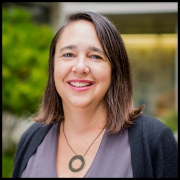 Sara M. Buckelew, MD, MPH
Sara M. Buckelew, MD, MPH
Professor of Pediatrics
University of California, San Francisco
Sara M. Buckelew, MD, MPH, is a specialist in adolescent medicine and the medical director of the UCSF Adolescent and Young Adult Medicine Clinic and Eating Disorders Program. She is the pediatric core clerkship director for UCSF’s School of Medicine. Her clinical focus is on caring for teenagers with eating disorders, including anorexia nervosa and bulimia. In research, she also focuses on eating disorders, as well as medical education scholarship.
Buckelew earned her medical degree from the Perelman School of Medicine at the University of Pennsylvania. She completed a residency in pediatrics at Children’s Hospital Los Angeles and earned a Master of Public Health degree from the University of California, Berkeley. At UCSF, she completed a residency in preventive medicine and public health, followed by a fellowship in adolescent medicine. She is a member of the Society of Adolescent Health and Medicine, American Academy of Pediatrics, and the Council on Medical Student Education in Pediatrics.

Sharon Calaman, MD
Sharon Calaman, MD, is a Professor of Pediatrics and the Division Director for Pediatric Critical Care and the Fellowship Director for Pediatric Critical Care at New York University Grossman School of Medicine and Hassenfeld Children’s Hospital. She received her medical degree from New York University School of Medicine, graduating AOA. She went on to do her Pediatric Residency, a Chief Residency, and Pediatric Critical Care Fellowship at the Children’s Hospital at Montefiore. Previously, she had served as the Pediatric Residency Program Director at St. Christopher’s Hospital for Children in Philadelphia, PA as well as Founding Director of their hospital-based simulation center.
Dr. Calaman’s passion and area of scholarly focus has been medical education. She has been recognized with numerous teaching awards. She has focused on teaching clinical reasoning skills in medical emergencies, primarily using simulation. She expanded that focus from teaching with simulation to faculty development in how to teach with simulation, teaching in a Master’s in Medical Simulation and conducting multiple workshops at national meetings. She has interests in communication skills, particularly around handoffs and patient and family centered rounds has been part of the multi-institution I-PASS Study Group since its inception, serving on the Education Executive Committee and leading the Simulation Subcommittee efforts in handoff education and now is part of the Patient and Family Centered Rounds I-PASS SCORE Project, focused on patient and family centered rounds education and its impact on medical errors. Dr. Calaman has served as an at-large member of the board of the Association of Pediatric Program Directors (APPD) and founded the Pediatric Education Group (PEG) on Healthcare Simulation within APPD, now known as a Learning Community. She is currently the chair elect for the Association of Pediatric Program Directors Spring Meeting Planning Committee.

Kecia N. Carroll, MD, MPH
Black Family Professor for Pediatrics
Professor of Pediatrics and Environmental Medicine and Public Health
Icahn School of Medicine at Mount Sinai
Kecia N. Carroll, MD, MPH, is the Division Chief of the Division of General Pediatrics in the Jack and Lucy Clark Department of Pediatrics at Mount Sinai. Dr. Carroll has also been appointed Professor of Pediatrics and Environmental Medicine and Public Health at the Icahn School of Medicine at Mount Sinai and Mount Sinai Kravis Children’s Hospital. She is a board-certified general pediatrician, clinical investigator, and epidemiologist and a member of the Institute for Exposomics Research at Mount Sinai.
Dr. Carroll completed her medical degree at Vanderbilt University School of Medicine, and her Pediatric Residency at the University of California San Francisco, and a General Academic Pediatrics Research Fellowship at Vanderbilt.
 Ann Chahroudi, MD, PhD
Ann Chahroudi, MD, PhD
Associate Division Chief for Basic/Translational Research
Division of Infectious Diseases
Associate Professor of Pediatrics, Emory University School of Medicine
Director, Emory + Children’s Center for Childhood Infections & Vaccines (CCIV)
Medical Director, Ponce Family & Youth Clinic
Infectious Diseases Program, Grady Health System
Ann Chahroudi, MD, PhD, is an Associate Professor of Pediatrics and Associate Division Chief for Basic/Translational Research in the Division of Pediatric Infectious Diseases at the Emory University School of Medicine. Dr. Chahroudi directs the Center for Childhood Infections and Vaccines (CCIV) of Children’s Healthcare of Atlanta and Emory University and is the Co-Director for Basic Science for the Emory Center for AIDS Research (CFAR). She also serves as Medical Director of the Ryan White Part D funded pediatric/adolescent HIV program (the Ponce Family and Youth Clinic) of the Grady Health System Infectious Diseases Program. Dr. Chahroudi serves on the Editorial Boards of the Journal of Virology and Clinical Infectious Diseases and is an elected member of the Society for Pediatric Research and a Fellow of the Pediatric Infectious Diseases Society. Dr. Chahroudi received her MD and PhD from Emory University School of Medicine and completed her general pediatrics residency at the Children’s Hospital of Philadelphia. She returned to Emory for subspecialty fellowship training in Pediatric Infectious Diseases. Dr. Chahroudi’s NIH-funded research program focuses on HIV persistence and remission, using nonhuman primate models to evaluate translational interventions towards an HIV cure. She received an NIH MERIT award in 2021 for this work and is MPI of the PAVE Martin Delaney Collaboratory.
 Jill Cholette, MD
Jill Cholette, MD
Professor of Pediatrics
Gordon Family Endowed Professor
Chief, Pediatric Critical Care
University of Rochester Golisano Children’s Hospital
Jill Cholette, MD, received her Undergraduate Degree from Mount Holyoke College and completed Medical School and Internal Medicine/Pediatric Residency at the University of Rochester. She is a double-boarded Pediatric Cardiac Intensivist who completed her Pediatric Cardiology and Pediatric Critical Care Fellowships at the University of Rochester. Her primary clinical research interests are in patient blood management, blood conservation and modification, and coagulation and hemostasis. She is on the executive committee of the PALISI BloodNet subgroup and Member-at-Large for the Society for the Advancement of Blood Management (SABM). She is the Medical Director for the Pediatric Cardiac Care Center and Chief of the Division of Pediatric Critical Care.
 Wendy Chung, MD, PhD
Wendy Chung, MD, PhD
Kennedy Family Professor of Pediatrics
Columbia University
Wendy Chung, MD, PhD, is a clinical and molecular geneticist and the Kennedy Family Professor of Pediatrics and Medicine and Director of Clinical Genetics. She received her BA in biochemistry and economics from Cornell University, her MD from Cornell University Medical College, and her PhD from The Rockefeller University in genetics. Dr. Chung directs NIH funded research programs in human genetics of pulmonary hypertension, autism, birth defects including congenital diaphragmatic hernia and congenital heart disease. She is a national leader in the ethical, legal, and social implications of genomics. She leads the Precision Medicine Resource in the Irving Institute At Columbia University. She has authored over 500 peer reviewed papers and 75 reviews and chapters in medical texts. She was the recipient of the Medical Achievement Award from Bonei Olam, the NY Academy of Medicine Medal for Distinguished Contributions in Biomedical Science, the Rare Impact Award from the National Organization of Rare Disorders, and is a member of the National Academy of Medicine and the American Academy of Physicians. Dr. Chung enjoys the challenges of genetics as a rapidly changing field of medicine and strives to facilitate the integration of genetic medicine into all areas of health care in a medically, scientifically, and ethically sound, accessible, and cost effective manner.
 Melinda Clark, MD
Melinda Clark, MD
Professor of Pediatrics
Albany Medical College
Bernard and Millie Duker Children’s Hospital
at Albany Medical Center
Melinda Clark, MD, is a general, academic pediatrician at Albany Medical Center with interest in international adoption, child abuse and neglect, and pediatric oral health. These 3 health domains share themes of health disparity, inequity, and disparate access to care. Completion of the Academic Pediatric Association Educational Scholar Program early in her career provided an opportunity to author and edit Protecting All Children’s Teeth, a comprehensive web-based pediatric oral health training program published by the American Academy of Pediatrics. This led to serving on the American Academy of Pediatrics Section on Oral Health, as co-chair of the AAP COHA Advisory Committee, and as editor-in-chief for Smiles for Life, an international, multi-disciplinary oral health curriculum educating across the lifespan; now in the 4th edition with over 3 million discrete website visits. Melinda Clark also serves as the American Academy of Pediatrics Chapter 1 Oral Health Advocate (COHA) and as a journal reviewer and content expert for AAP quality improvement initiatives, as well as a consultant for dental foundations, national dental organizations, the NYS Department of Health, and HRSA. Associated oral health grants, publications, presentations, and curriculum development have focused on closing educational gaps, enhancing the delivery of primary care services, and system redesign to improve health care access and population health.
 Donna M. Denno, MD, MPH
Donna M. Denno, MD, MPH
Professor, Department of Pediatrics
University of Washington
Donna M. Denno, MD, MPH, is a Professor of Pediatrics in the University of Washington (UW) School of Medicine with a Joint appointment in the Department of Global Health and Adjunct appointment in the Department of Health Systems and Population Health in the School of Public Health (SPH). Her clinical, teaching, and research career has been dedicated to reducing health care and health disparities among under-resourced communities, both domestically and globally. She is affiliated with Seattle Children’s Hospital and is an attending pediatrician at a community clinic serving a population that has been economically and socially disadvantaged. Dr. Denno teaches the core graduate-level course in the UW School of Public Health on maternal and child health in low- and middle-income countries. Her research interests focus on global child health — particularly gastrointestinal infections, enteric dysfunction, and malnutrition and their intertwining roles in child health, as well as health services approaches to improving adolescent health and care of hospitalized children and improving guidelines of care.
 Hitesh Deshmukh MD, PhD
Hitesh Deshmukh MD, PhD
Associate Professor of Pediatrics
Associate Director – Child Health Research Development Award (K12) program
Cincinnati Children’s Hospital Medical Center
Defending the lung from microbial pathogens is a lifelong challenge, the trajectory of which depends on the development of a robust but metered innate and acquired immune system. Dr. Hitesh Deshmukh’s research program, supported by multiple grants from the National Institutes of Health, explores the paradigm that education of pulmonary immunity and the ability to repair pulmonary tissues after infection begins in the early perinatal period — and is influenced by systemic, gastrointestinal, and pulmonary exposures to resident and pathological microbes.
Hitesh Deshmukh MD, PhD, is a board-certified neonatologist and provides intensive medical care to preterm neonates in the neonatal intensive care unit. He is passionate about pediatric physician-scientist training and development. Dr. Deshmukh is the associate director of the Child Health Research Development Award (K12). His trainees have won the Marshall Klaus Award from the American Academy of Pediatrics as well as the Sabin Fellow Award. Graduates have gone on to pursue careers in academic medicine.
 Daniel A. Doherty, MD, PhD
Daniel A. Doherty, MD, PhD
Professor of Pediatrics
University of Washington
Dr. Doherty’s research interests focus on hindbrain malformations as a way to understand human brain development and common disorders such as intellectual disability, autism, ataxic cerebral palsy and even mental health disorders such as schizophrenia. The hindbrain regulates basic functions (level of consciousness, heart rate, respiratory rate), coordinates balance, limb and eye movements, as well as having possible roles in cognition and emotional regulation. His group uses a variety of genetic techniques (SNP mapping, array CGH, and high throughput sequencing) to identify the genes responsible for hindbrain malformation disorders such as Disorders of Hindbrain Development. Identifying the genes responsible for a disorder immediately translates into molecular diagnostic testing, and detailed work on genotype-phenotype correlations improves diagnostic, prognostic and medical management information for patients. In addition, Dr. Doherty’s group and his collaborators use the disease genes to dissect the molecular mechanisms of normal and abnormal brain development in vitro and in animal models. The human hindbrain is a fascinating system in which to study the role of basic developmental processes (spatially restricted gene expression to define positional information, organizing centers, morphogenetic movements, cell-cell and long-range signaling, cell migration and axon guidance) in human disease.
Dr. Doherty’s clinical interests complement the research interests of his group. He cares for children with all types of central nervous system abnormalities including Disorders of Hindbrain Development, agenesis of the corpus callosum, cortical malformations, hydrocephalus, spina bifida, intellectual disability and cerebral palsy. He also provides prenatal counseling to women carrying fetuses with abnormal CNS imaging findings to provide a pediatric perspective on these conditions.
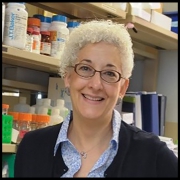 Marie E. Egan, MD
Marie E. Egan, MD
Professor of Pediatrics and Cellular and Molecular Physiology
Yale University
Marie Egan is a Professor of Pediatrics and Cellular and Molecular Physiology at Yale University. After attending the University of Pennsylvania as an undergraduate, she received her MD at the Mount Sinai School of Medicine. After medical school she moved to Baltimore where she completed her pediatric internship and residency, as well as a Pediatric Pulmonary Fellowship at The Johns Hopkins Medical Center before joining the faculty at Yale University. She has been at Yale for her entire faculty life starting as an instructor and moving up the ladder to full professor. Dr. Egan serves as the Director of the Yale Cystic Fibrosis Center, the Vice Chair of Research for the Department of Pediatrics, Interim Chief of Pediatric Pulmonary Allergy Immunology and Sleep Medicine and has a busy pediatric pulmonary clinical practice that spans both the inpatient and outpatient arenas. Her primary research interest is Cystic Fibrosis from the laboratory bench to the bedside. Her lab group has done extensive studies of the structure/ function relationship of CFTR on epithelial ion transport, understanding the role of CFTR in the exaggerated inflammatory response observed in CF, as well as developing strategies aimed at correcting the basic CFTR defect via the development of small molecules to make the most of a mutant protein and by gene editing to correct the mutation. Ultimately, the lab group hopes to bring therapies from bench to bedside. She has received the Breath of Life Award from the Cystic Fibrosis Foundation. She has served as a site PI on many studies and have been a member of the Data Monitoring Safety Committee for a number of others and serves on the Genetic therapies working group. Lastly, developing the next generation of Pediatric leaders is an extremely important area of interest, so she has served as a mentor to numerous medical students, graduate students, postdoctoral fellow and junior faculty. She was the recipient of the Mae Galani Junior Faculty Teaching Award for excellence in teaching and research and the Leah Lowenstein Faculty Teaching Award and has been elected to Yale’s Society of Distinguished Teachers. She has served on numerous national committees for the American Thoracic Society (ATS), the Cystic Fibrosis Foundation (CFF), the Society of Pediatric Research (SPR) and the National Institutes of Health (NIH) the Charles Hood Foundation, the FDA, the American Heart Association and the March of Dimes to advance the lung health of children.
 Cyril Engmann, MD, FAAP
Cyril Engmann, MD, FAAP
Senior Director, Integrated Program Quality & Impact
Institutional Official – PATH & Attending Neonatologist & Joint Professor
Departments of Pediatrics & Global Health
Schools of Medicine & Public Health- University of Washington & Seattle Children’s Hospital
Cyril Engmann, MD, FAAP, is the Senior Director of Quality and Program Impact and Institutional Official at PATH, an international health non-profit organization driving transformative innovation to save lives in more than 70 countries.
As Senior Director, he serves as the senior leader accountable for providing deep scientific, medical, and public health expertise, operational excellence, oversight, and leadership across all divisions of PATH to strengthen organizational impact. As Institutional Official, he oversees PATH’s research and regulatory affairs, including the confidential institutional review and/or approval process of proposed research activities involving human subjects. Prior to this, Dr. Engmann served as the Director of the Maternal, Newborn, Child Health and Nutrition (MNCHN) global program at PATH. In that role, he led a department of over 120 staff (physicians, public health practitioners, social scientists, nutritionists, economists, engineers, and business, policy, and communications experts) working on five continents across a diverse and complex portfolio spanning the value chain from research, education, policy and planning, programming, implementation science, monitoring and evaluation, market dynamics, and technical assistance at global and national levels with a pipeline totaling over $300M.
Prior to joining PATH in 2014, Dr. Engmann led the Bill and Melinda Gates Foundation Newborn Health Strategy where he designed and oversaw a portfolio of grants totaling $200M. He also remains an active, practicing physician and academic at the University of Washington Schools of Medicine & Public Health, Seattle, where he is Attending Neonatologist and Professor of Pediatrics and Global Health.
Widely regarded as a global leader in the field and with extensive experience in the research, policy, advocacy, and program spheres, Dr. Engmann is credited with initiating and holding leadership roles within several global efforts adopted by all 194 signatory countries of the United Nations, including the Every Newborn Action Plan, the Nurturing Care for Early Childhood Development Framework, the Global Preterm Research Consortium, and the Maternal Immunization Consortium. Internationally, he chairs or serves on numerous strategic, technical, policy or scientific advisory boards and steering committees. Most recently, he chaired a consortium that advised the British Government on their global nutrition portfolio spend, serves on the World Economic Forums Global Health Equity steering committee, and led numerous health consultations with Ministries of Health of Ethiopia, India, Ghana, Bangladesh, Kenya, South Africa, among others. Domestically, he sits on the United States National Institute of Health Expert Panel that advises on all US-Government-sponsored COVID-19 trials and is frequently invited to hold educational and global public health briefings at the United States Congress and Senate on domestic and international health challenges and solutions. Within Washington, he serves on the Governor of Seattle’s Principal Advisors Team for Challenge Seattle – an alliance of CEOs from 21 of the region’s largest employers, and on the Washington Research Foundation postdoctoral fellowship program.
Dr Engmann has authored over 130 peer-reviewed publications and book chapters, abstracts, and white papers. He was lead author of the expert groups who outlined what the next 20 years should look like for the field of reproductive, maternal, newborn and child health, and in another publication, for maternal immunization. An acknowledged thought-leader, he is a frequent keynote speaker at major global health-related conferences. In addition to currently mentoring staff and faculty in academic and non-academic settings, he has taught and supervised generations of undergraduate, masters, and doctoral-level public health students, and medical students, residents, and fellows in the United States and abroad. He has been an external examiner for the University of Queensland, Australia, and Malawi College MPH programs and has practiced medicine in Asia, Africa, Europe, and North America. Dr. Engmann is a Board- Certified active pediatrician and neonatologist and Fellow of the American Academy of Pediatrics and the Society for Pediatric Research.
Dr. Engmann has dedicated his life to addressing social injustice, improving health, and combating health inequity. He is passionate about driving organizational impact through strategic, interdisciplinary, purpose-driven partnerships and utilizing data evidence to improve the human condition and put bold solutions into action.

Kevin C. Ess, MD, PhD
Principal Investigator, Gerald M. Fenichel Chair in Neurology, Pediatrics
Division Chief, Division of Pediatric Neurology
Associate Professor, Department of Neurology; Department of Pediatrics
Associate Professor, Department of Cell and Developmental Biology
Vanderbilt University Medical Center
Kevin C. Ess, MD, PhD, is Gerald M. Fenichel Chair in Neurology and associate professor of Pediatrics, Cell & Developmental Biology, and Neurology, as well as director of the Division of Pediatric Neurology. Research in Dr. Ess’s lab is focused on deciphering the molecular mechanisms required for typical brain development and how disruptions of these processes lead to malformations of the cerebral cortex. Children with these aberrations typically suffer from severe seizure disorders such as epilepsy as well as severe cognitive and behavioral problems such as autism. To approach these complex neurologic disorders, Dr. Ess has been studying tuberous sclerosis complex (TSC), a disease that prominently features cortical malformations and is caused by loss of either the TSC1 or TSC2 genes. TSC is quite prevalent and is the most common genetic cause of seizures and autism in children. To study these complicated abnormalities of the human brain, Dr. Ess has generated experimental models of TSC using genetically engineered mice as well as in vitro progenitor cell systems. His long-term goal is to use these models to precisely define the molecular pathways used by the TSC1/2 genes during human brain development. This knowledge will facilitate the development of more efficacious therapies for children who have epilepsy or autism.

Stephen Freedman MDCM, MSc
Professor of Pediatrics and Emergency Medicine
Alberta Children’s Hospital Foundation Professor in Child Health and Wellness
Alberta Children’s Hospital Research Institute, Cumming School of Medicine
University of Calgary
Stephen Freedman MDCM, MSc, is Professor of Pediatrics and Emergency Medicine at the University of Calgary. He completed his residency at The Hospital for Sick Children in 2000 and a pediatric emergency medicine fellowship in 2003 at Children’s Memorial Hospital. He obtained a Master’s of Science in Clinical Investigation at Northwestern University. He is the Past-Chair of Pediatric Emergency Research Canada and the Alberta Children’s Hospital Foundation Professor in Child Health and Wellness.
His research focus is on applying clinical research to improve outcomes in children seeking emergency department care. His focus is on the use of innovative, multidisciplinary approaches to solve complex problems. He has published over 190 peer-reviewed manuscripts and is the principal investigator on numerous multicentre clinical trials with funding support from CIHR and the NIH. Most recently, he received CIHR funding to lead two multi-national pediatric COVID-19 studies and NIH funding to evaluate an intervention to prevent progression of disease in children infected with Shiga toxin producing E. coli.
 Gregory K. Friedman, MD
Gregory K. Friedman, MD
Professor of Pediatrics, Neurosurgery, Surgery
Director of Developmental Therapeutics Program
Alabama Center for Childhood Cancer & Blood Disorders
The University of Alabama at Birmingham
Gregory Friedman, MD, is a pediatric neuro-oncologist and Professor at The University of Alabama at Birmingham (UAB). He is the Director of Developmental Therapeutics in the Alabama Center for Childhood Cancer & Blood Disorders and a Scientist in the UAB O’Neal Comprehensive Cancer Center. His research focus is on improving outcomes for children with brain tumors by developing targeted immunotherapies like oncolytic virotherapy in the lab and then translating these therapies to clinical trials. He was the Principal Investigator (PI) for the first completed trial of an oncolytic virus in children with recurrent brain tumors, and he is currently the PI for a first-in-human trial of an oncolytic HSV in recurrent cerebellar tumors. His ongoing and past research has been supported by the U.S. FDA, the Department of Defense, CureSearch for Children’s Cancer, Rally Foundation, The V Foundation, Cannonball Kids’ cancer Foundation, St. Baldrick’s Foundation, Hyundai Hope on Wheels, the Andrew McDonough B+ Foundation, and the Pediatric Cancer Research Foundation.
 Michelle Gill, MD, PhD
Michelle Gill, MD, PhD
Director, Center for Pediatric Pulmonary Disease and Asthma
Professor of Pediatrics, Divisions of Allergy & Pulmonary Medicine and Infectious Diseases
Washington University School of Medicine in St. Louis
Michelle Gill, MD, PhD, received her MD and PhD in Cellular Biology & Anatomy from Louisiana State University Medical Center in Shreveport, LA. She completed Pediatric Residency and Chief Resident year at Arkansas Children’s Hospital/University of Arkansas Medical Sciences in Little Rock, AR. Dr. Gill completed Pediatric Infectious Diseases fellowship at UT Southwestern Medical Center in Dallas, TX and served on the faculty at UT Southwestern Medical Center from 2003 – mid 2021.
Dr. Gill’s leadership roles/honors during her career have included: Assistant Director of the Medical Scientist Training Program at UT Southwestern Medical Center; President of Society for Pediatric Research (SPR); SPR Ambassador for North American Regional Societies; Board of Directors, Pediatric Academic Societies, NIH NIAID Inner City Asthma Consortium steering committee; FDA Allergenic Products Advisory Committee; Alpha Omega Alpha member. She was recently recruited to Washington University School of Medicine in St. Louis in September 2021 as the Director of the Pediatric Pulmonary Disease and Asthma Center in the Children’s Discovery Institute.
 Fernando Gonzalez, MD
Fernando Gonzalez, MD
Professor of Pediatrics
Co-Director, Neuro-Intensive Care Nursery
Director, Pediatric Molecular Medicine Pathway
University of California, San Francisco
My research is focused on determining how the full-term brain responds to acute injury during the neonatal period, and strategies to enhance neuroplasticity and long-term functional outcomes. My specific research goals are to: (1) clearly define the neuronal subpopulations that are vulnerable to ischemia and critical for neurodevelopment, (2) determine the mechanisms of injury and endogenous repair in the immature brain, and (3) define therapeutic strategies to enhance long-term function. Specifically, I am interested in how the immature brain differs from the adult brain in its response to stroke, and how reparative mechanisms can be enhanced with delayed therapy. Throughout my training, I have had broad exposure to various aspects of central nervous system (CNS) development and repair, including: evaluation and inhibition of pain through direct CNS treatment; the effects of local injury on wound healing and phagocytosis; direct evaluation of behavioral, cognitive, and nociceptive function after injury; pathophysiologic mechanisms of early brain injury; and the effects of exogenous therapy on early brain injury. Our findings on the short-term effects of exogenous erythropoietin treatment on neurogenesis after early rodent stroke prompted a study to determine beneficial treatment strategies that improve long-term functional outcomes. This project showed that prolonged erythropoietin treatment is most effective for long-term behavioral improvement, a finding that informed clinical studies in humans to treat neonatal brain injury. My current research is focused on cell type-specific changes in the peri-infarct cortex, including alterations in angiogenesis, cell fate and circuit formation. This will have a significant impact in improving knowledge and identifying novel therapies to treat early injury.
 Misty Good, MD, MS
Misty Good, MD, MS
Division Chief of Neonatal-Perinatal Medicine
Associate Professor
University of North Carolina at Chapel Hill
Dr. Misty Good is a Neonatologist-Scientist, Division Chief of Neonatal-Perinatal Medicine and an Associate Professor in the Department of Pediatrics at the University of North Carolina at Chapel Hill. Dr. Good has dedicated her scientific career to understanding the mechanisms regulating intestinal development and the mucosal immune response in the gastrointestinal disease affecting premature infants called necrotizing enterocolitis (NEC). Her laboratory is R01 funded by the National Institutes of Health to study how these inflammatory responses can be prevented through targeted intestinal epithelial therapies. Additionally, Dr. Good has ongoing translational research studies for which she has developed the multi-center NEC Biorepository to evaluate the differences in the biological signature of infants with and without necrotizing enterocolitis. Dr. Good has also received several awards for her mentorship of trainees, and she is committed to inspiring, training and fostering the next generation of neonatologist-scientists.

Jeffrey R. Gruen, MD
Professor of Pediatrics and of Genetics
Director, Yale Program for Learning Disability Research
Program in Computational Biology and Biostatistics, Investigative Medicine Program, Interdepartmental Neuroscience Program:
Jeffrey R. Gruen, MD, graduated from Tulane University in 1977 with a B.S. degree in Chemistry. Following graduation from Tulane Medical School in 1981 he began internship and residency training in Pediatrics at Yale-New Haven Hospital from 1981 through 1984, and fellowship training in Neonatology at Yale Medical School from 1984 through 1988. During fellowship he undertook research training in Cell Biology and Molecular Genetics.
Dr. Gruen formally joined the Yale faculty as an Assistant Professor in 1988, dividing his time as a Neonatology attending in the Newborn Intensive Care Unit at Yale-New Haven Hospital and his lab in the Yale Child Health Research Center where he initially mapped the gene for hemochromatosis. By 2000, the focus of his lab turned to mapping and identifying the reading disability (dyslexia) gene locus on chromosome 6 (DYX2). His lab was the first to generate high-resolution genetic markers, genetic association maps, and gene expression maps of DYX2. These studies led to the identification of DCDC2, a dyslexia gene that was cited by the journal Science as the 5th top breakthrough of 2005.
Since then, Dr. Gruen has broadened the scope of his research to other common learning disabilities including specific language impairment, speech sound disorder, and verbal trait disorders. He is the principal investigator of two multicenter translational-genetics studies on dyslexia. The Genes, Reading and Dyslexia (GRaD) Study is a first of its kind case-control study of dyslexia in 1,432 African American and Hispanic American youth, with the goal of creating a genetic screening tool for early identification of children at risk for dyslexia. The second, called the New Haven Lexinome Project, is a longitudinal trial of two consecutive first-grade classes in New Haven Public Schools, with the goal of testing the feasibility of precision intervention in a real-world public school setting, that includes serial psychometric evaluations, functional magnetic resonance imaging (fMRI), and whole-genome sequencing. Dr. Gruen also leads the genomic analysis project for the Colorado Learning Disabilities Research Center, which is a part of the National Institutes of Child Health and Development Learning Disabilities Research Centers Consortium (NIH). In 2021, he established the Yale Program for Learning Disability Research to focus on research, training young investigators, and policy initiatives. He teaches two courses in the Investigative Medicine Program in the Yale Graduate School, and has mentored multiple predoctoral and doctoral students, medical students, post-doctoral fellows and associate research scientists. Dr. Gruen has over 90 peer-review publications in highly regarded scientific journals including Proceedings of the National Academy of Sciences USA, Nature Neuroscience, American Journal of Human Genetics, and PLoS One. In addition to his research, Dr. Gruen continues to attend in the Neonatal Intensive Care Unit of the Children’s Hospital at Yale-New Haven.
 Joan C. Han, MD
Joan C. Han, MD
Professor of Pediatrics
Chief, Division of Pediatric Endocrinology & Diabetes
Icahn School of Medicine at Mount Sinai
Joan C. Han, MD, is Professor of Pediatrics and Chief of the Division of Pediatric Endocrinology and Diabetes in the Jack and Lucy Clark Department of Pediatrics at the Icahn School of Medicine at Mount Sinai and Mount Sinai Kravis Children’s Hospital. She earned her undergraduate and medical degrees from Harvard University. She completed her residency in pediatrics at Boston Children’s Hospital and Boston Medical Center and pursued further advanced training in a clinical research fellowship at Nemours Children’s Clinic in Jacksonville, Florida, and a pediatric endocrinology fellowship at the National Institutes of Health in Bethesda, Maryland. Prior to joining Mount Sinai, she was Associate Professor of Pediatrics and Director of the Pediatric Obesity Program at the University of Tennessee Health Science Center and Le Bonheur Children’s Hospital in Memphis, Tennessee. She is board certified in General Pediatrics, Pediatric Endocrinology, and Obesity Medicine and has published broadly in these fields. Dr. Han’s primary research efforts focus on the neuroendocrine regulation of energy balance and cognitive functioning as well as the genetic, environmental, and behavioral determinants of metabolic health in the general population and in patients with rare genetic disorders associated with obesity and type 2 diabetes.
 Sanjiv Harpavat, MD, PhD
Sanjiv Harpavat, MD, PhD
Associate Professor
Pediatrics-Gastroenterology
Baylor College of Medicine
Sanjiv Harpavat, MD, PhD, is a pediatric gastroenterologist with focus in liver diseases. His research interests are in improving outcomes in biliary atresia, the leading indication for pediatric liver transplantation in the United States. He leads an NIH-funded multi-hospital newborn screening initiative for BA, as well as clinical trials of novel medications to help improve outcomes in BA after the Kasai operation. Dr. Harpavat’s clinical interests include neonatal cholestasis (abnormal jaundice in newborns and infants), genetic causes of liver disease such as progressive familial intrahepatic cholestasis and Wilson disease, liver transplantation, and non-alcoholic fatty liver disease.
 Evelyn Hsu, MD
Evelyn Hsu, MD
Associate Professor of Pediatrics
Division Chief, Division of Gastroenterology and Hepatology
University of Washington School of Medicine and Seattle Children’s Hospital
Evelyn Hsu, MD, is the Division Chief of Gastroenterology and Hepatology at Seattle Children’s Hospital, where she has also held positions as the Medical Director of Liver Transplantation and Transplant/Advanced Hepatology Fellowship Program Director. She is an Associate Professor of Pediatrics at University of Washington School of Medicine. She completed her medical school training at the University of Wisconsin School of Medicine and Public Health, and went on to complete residency and fellowship training at Seattle Children’s Hospital and the Children’s Hospital of Philadelphia, respectively.
Dr. Hsu has committed her career to research and advocacy in the realm of Pediatric organ allocation. She is currently the Chair of the Pediatric Transplantation Committee of the United Network for Organ Sharing, and vice-president of the Society of Pediatric Liver Transplantation.
 Sohail Z. Husain, MD
Sohail Z. Husain, MD
Chambers-Okamura Endowed Professor of Pediatrics (Gastroenterology) and serving as
Chief of Pediatric Gastroenterology, Hepatology, and Nutrition
Stanford University School of Medicine and Stanford Children’s Health
Sohail Z. Husain, MD, is the Chambers-Okamura Endowed Professor and Chief of the Division of Pediatric Gastroenterology, Hepatology, and Nutrition at Stanford. He assumed the position as Chief in 2019, with the vision for Stanford to serve as the pre-eminent provider of pediatric GI care in the region and to emerge as a global leader in pediatric GI research and education and a destination site for highly recognized programs of excellence. The mission that he promotes for the Division is to “heal children with digestive disease through innovation.”
Sohail likes to be a matchmaker. At Stanford, he intends to marry science and medicine. Early on in his career, he became entrenched in a quest to decipher the mechanisms underlying disorders of the exocrine pancreas. Sohail’s research investigates three broad areas relating to the exocrine pancreas: (1) The crucial molecular and immune signaling pathways that initiate and transduce pancreatitis; (2) the factors that turn on pancreatic regeneration and recovery after pancreatic injury; and (3) the mechanisms underlying drug-induced pancreatitis. The overarching goal is to move the needle on science and medicine and to elevate work in the exocrine field to the highest levels of impact, by leveraging multi- omics, big data, and the rich, cutting-edge environment across Stanford. The mission of Sohail’s research group is to “make breakthroughs in the pancreas and beyond that benefit patients and society, through innovation, partnerships, inclusion, and integrity.”
Sohail takes pride in the institutions that trained him. This includes Tufts University, where he earned an MD, New York University, where he did his Pediatric residency, and Yale University, where he trained as a Pediatric GI fellow. Before moving to Stanford, Sohail served as Director of the Pediatric Exocrine Pancreatic Disorders Program at the University of Pittsburgh.
Sohail enjoys hiking, swimming, and jogging. He is actively involved in humanitarian projects, with Humanity First USA, including taking disaster relief trips after the 2005 tsunami to Banda Aceh (Indonesia), the 2006 hurricane Katrina to New Orleans, and the 2010 earthquake to Port- au-Prince (Haiti). He was born in India, raised in Brooklyn, and now resides in the beautiful Bay Area.
 Jeffrey P Jacobs, MD
Jeffrey P Jacobs, MD
Professor Of Surgery And Pediatrics
University of Florida College of Medicine
 Shafali Spurling Jeste, MD
Shafali Spurling Jeste, MD
Professor of Neurology and Pediatrics
Keck School of Medicine of USC
Chief, Division of Neurology
Children’s Hospital, Los Angeles
Shafali Spurling Jeste, MD, is a behavioral child neurologist specializing in autism and related neurodevelopmental disorders. She is Professor of Pediatrics and Neurology at the USC Keck School of Medicine, and the Las Madrinas Chair, Chief of Neurology and Co-Director of the Neurological Institute at CHLA. After earning a BA in philosophy from Yale University in 1997 and her MD from Harvard Medical School in 2002, Dr. Jeste completed a residency in child neurology and a fellowship in behavioral child neurology at Boston Children’s Hospital. She joined UCLA in 2010. Dr. Jeste’s research is focused on developing methods to improve precision in the diagnosis and treatment of neurodevelopmental disorders. Her lab studies neurodevelopmental disorders from early infancy through late childhood. Dr. Jeste has designed innovative studies in early predictors of autism in Tuberous Sclerosis Complex (TSC) that integrate biomarkers with behavior to define atypical development prior to the onset of autism. This work in TSC has led to the first randomized controlled clinical trial of behavioral intervention for these infants and has paved the way for other early intervention trials in rare genetic syndromes. Dr. Jeste’s research is directly inspired by her clinical work. To address the many gaps in medical care for rare genetic forms of neurodevelopmental disorders, she founded the CARING (Care and Research in Neurogenetics) Clinic. This clinic, which will launch at CHLA in January 2022, became the hub for several new clinical trials for genetic syndromes. Dr. Jeste’s work is funded by the National Institutes of Health, the Department of Defense and the Simons Foundation. She holds several national and international leadership positions including the Board of Directors of the American Brain Foundation, Board of Directors of the National Organization for Rare Disorders, the Board of Directors of the International Society for Autism Research, and she recently served as the Chair of the International Baby Siblings Research Consortium. In 2019 she was awarded the Presidential Early Career Award for Scientists and Engineers for her innovations in research in early predictors and intervention for genetic neurodevelopmental disorders.
 Jeffrey M. Kaczorowski, MD
Jeffrey M. Kaczorowski, MD
Professor
University of Rochester Medical Center
Jeffrey M. Kaczorowski, MD, is National Director of the American Academy of Pediatrics Community Pediatrics Training Initiative (CPTI). CPTI has worked with over 80 Departments of Pediatrics/Children’s Hospitals throughout the United States to provide faculty development and residency training in community health and advocacy. He also is the founding Director of the Hoekelman Center for training leaders in community health and advocacy at Golisano Children’s Hospital at the University of Rochester Medical Center.
Dr. Kaczorowski is President of The Children’s Agenda, a local advocacy organization in Rochester that improves the health, education and success of our community’s children and youth, especially the most vulnerable, through advocacy for evidence-based solutions and policy change at the local, state, and federal levels. He is a recent recipient of the WT Grant Distinguished Fellowship and works with the Children’s Institute to promote effective violence prevention strategies for children and youth in the Rochester City School District.
 Paul F. Kantor, MBBCh, MSc
Paul F. Kantor, MBBCh, MSc
Professor of Pediatrics, Keck School of Medicine of USC
Chief, Division of Cardiology
Associates Chair in Cardiology
Children’s Hospital Los Angeles
Dr. Kantor obtained his medical degree from the University of Witwatersrand in Johannesburg, South Africa. He completed his residency at Albert Einstein College of Medicine (NY), and at the University of British Columbia in Vancouver, Canada, and both clinical and research fellowships in pediatric cardiology and translational cardiac research in Vancouver and at the University of Alberta. He is Board-certified in pediatrics and pediatric cardiology in Canada and the U.S. He also holds a Master of Science degree in health economics from the London School of Economics and Political Science.
 David A. Kessler, MD
David A. Kessler, MD
Chief Science Officer for the Covid-19 Response
David A. Kessler, MD, who serves as Chief Science Officer for Covid Response for the administration of President Joe Biden, was the Commissioner of the Food and Drug Administration (FDA) from 1990 to 1997, under Presidents George H. W. Bush and Bill Clinton. As Commissioner of the FDA, Dr. Kessler acted to speed approval of new drugs and placed high priority on getting promising therapies for serious and life-threatening diseases to patients as quickly as possible, including the accelerated approval for major drugs in the treatment of HIV-AIDS, culminating in the development of protease inhibitors. Under his direction, the FDA announced a number of new programs, including the regulation of the marketing and sale of tobacco products to children, nutrition labeling for food, and the MEDWatch program for reporting adverse events and product problems. Dr. Kessler has served as chair of the boards of the Center for Science in the Public Interest and the Elizabeth Glaser Pediatric AIDS Foundation (EGPAF). At EGPAF, Dr. Kessler helped spearhead a major global effort to make drugs available to millions to end the transmission of mother-to-child HIV-AIDS. A professor (on leave) of pediatrics and epidemiology and biostatistics at the University of California, San Francisco (UCSF), Dr. Kessler has also served as the dean of the medical schools at Yale and UCSF. Dr. Kessler is a graduate of Amherst College, the University of Chicago Law School, and Harvard Medical School. He was awarded the Public Welfare Medal from the National Academy of Sciences in 2001. Dr. Kessler, a member of the National Academy of Medicine, is the author of a number of books addressing the pressing public health issues of our time.
 Katherine Y. King MD, PhD
Katherine Y. King MD, PhD
Associate Professor, Department of Pediatrics, Division of Infectious Diseases
Baylor College of Medicine and Texas Children’s Hospital
Katherine Y. King, MD, PhD, is Associate Professor of Pediatric Infectious Diseases at Baylor College of Medicine, where she is part of the faculty for the Stem Cells and Regenerative Medicine Center and serves as a co-director of the BCM Medical Scientist Training Program and Associate Vice-Chair for Research for the Department of Pediatrics. Dr. King received her BA in Biochemical Sciences from Harvard University and her MD and PhD degrees from Washington University in St. Louis. A board-certified pediatrician within the Infectious Disease Division, Dr. King’s research focuses on the molecular mechanisms by which inflammation affects blood and immune cell production by hematopoietic stem cells in the bone marrow. Dr. King has been the recipient of the NHLBI R35 Emerging Investigator Award and the Presidential Early Career Award for Scientists and Engineers (PECASE). In 2006, she cofounded Doctors for Change, a health care advocacy non-profit in Houston.
 Melissa Klein, MD, Med
Melissa Klein, MD, Med
Professor of Pediatrics
Associate Division Director, General and Community Pediatrics
Associate Director, Cincinnati Children’s Pediatric Education Center
Melissa Klein, MD, Med, is a Professor of Pediatrics at the University of Cincinnati College of Medicine. She serves as the Associate Division Director for Career Development and Education in the Division of General and Community Pediatrics, is a general pediatrician, medical educator, and researcher. At Cincinnati Children’s Hospital, she serves the Associate Director of the Cincinnati Children’s Pediatric Education Center, the Co-Director of the Office of Pediatric Clinical Fellows, and the Medical Director of the Masters of Education and program. On the national level, she is the Director of the Academic Pediatric Association’s Educational Scholars Program and an Associate Editor of Education for Academic Pediatrics. Her main research interest focuses on rigorous development, implementation and evaluation of innovative education and training experiences that impact child health.
 Michele Kong, MD
Michele Kong, MD
Professor of Pediatrics
Pediatric Critical Care Medicine
The University of Alabama at Birmingham
Michele Kong, MD, is originally from the island of Borneo and went to Canada in pursuit of her medical degree. She graduated from the University of Calgary, Canada and furthered her training as a pediatric critical care physician at University of Alabama at Birmingham (UAB). Dr. Kong is the co-founder of KultureCity, an international nonprofit with the mission to rethink accessibility to create acceptance and inclusion for all individuals regardless of their challenges and diagnosis. She is a Professor of Pediatrics at UAB and practices medicine as an intensivist at Children’s Hospital of Alabama. Dr. Kong is an NIH funded physician scientist at UAB. She is a highly regarded speaker, and well published in high-impact medical and non-medical journals. She was recently awarded the 2019 Woman of Impact Award, which recognizes the honoree’s personal and professional contributions to the State of Alabama that have moved the needle across business, government, and non-profit sectors. At UAB, her contribution to the field, and service to the community was recognized with the UAB Dean’s Excellence Award in Service, UAB Outstanding Woman in the Community Award, and the Odessa Woolfolk Community Service Award. Michele is also an avid ultrarunner and successfully competed in a 100-mile race.
 Bernhard Kühn, MD
Bernhard Kühn, MD
Associate Professor of Pediatrics
Director, Pediatric Institute for Heart Regeneration and Therapeutics (I-HRT)
Associate Director, Richard King Mellon Foundation Institute for Pediatric Research
University of Pittsburgh School of Medicine
Bernhard Kühn, MD, is a physician-scientist and board-certified and clinically active pediatric cardiologist. Dr. Kühn is a tenured professor of pediatrics at the University of Pittsburgh, where he directs the Institute for Heart Regeneration and Therapeutics (I-HRT), whose mission is to regenerate the hearts of infants with congenital heart disease, the most common birth defect. Dr. Kühn’s research has advanced our understanding of the cellular and molecular mechanisms of post-natal heart growth in humans. Based on this new knowledge, he has developed novel approaches for treating heart failure. The significance of these advances has established Dr. Kühn’s international reputation.
As a graduate student, Dr. Kühn has worked on signal transduction of G protein-coupled receptors (GPCR), the targets of most approved medications. In 2004, he has entered the field of heart regeneration research and developed new biologics for treating heart failure. In 2019, his research team has discovered that β-blockers could be used to increase heart muscle cell proliferation of patients with congenital heart disease. He has translated this discovery into an NIH-funded clinical trial. If successful, this would be the first demonstration that heart muscle regeneration can be directed in humans.
Dr. Kühn has trained in pediatrics at Yale (program director: Dr. Norman Siegel) and pediatric cardiology at Boston Children’s Hospital (program director: Dr. Peter Lang). He joined the faculty of Harvard Medical School in 2005 and has served on the faculty at the University of Pittsburgh since 2014.
 Praveen Kumar, MBBS, DCH, MD
Praveen Kumar, MBBS, DCH, MD
Associate Chair, Department of Pediatrics
Professor of Clinical Pediatrics, University of Illinois
Children’s Hospital of Illinois, Peoria, IL
Praveen Kumar, MBBS, DCH, MD, is associate head of department of pediatrics and clinical professor of pediatrics at University of Illinois College of Medicine at Peoria. Dr. Kumar completed his medical education and pediatric residency training from Christian Medical College, Ludhiana, India. He completed a fellowship in Neonatology at Children’s Hospital of Michigan, Detroit and worked as neonatologist at Northwestern Memorial Hospital and Lurie Children’s Hospital in Chicago before joining Children’s Hospital of Illinois in Peoria in 2014.
Dr. Kumar is a strong advocate for infants, their families, and physicians. He has served in leadership roles at both regional and national levels. Dr. Kumar is a member of several societies including SPR, AAP, APA, MWSPR, Indian Academy of Pediatrics, and Indian Medical Association. He is a past member of AAP Committee on Fetus and Newborn, AAP Neonatal Resuscitation Program Steering committee, SPR Member Engagement Committee, NeoReviews Plus editorial board, Pediatrics editorial board, executive committee of the Perinatal Quality Collaborative of Illinois, and Illinois Department of Public Health Genetic and Metabolic Advisory Committee. In 2011, he served on the Workgroup on Screening for Critical Cyanotic Congenital Heart Disease for Secretary’s Advisory Committee on Heritable Diseases in Newborns and Children which developed the strategies for implementing screening for critical congenital heart disease in US. He has published over 80 peer-reviewed articles and published a book for primary care providers on congenital malformations in 2007.
He and his wife Sara, a recently retired pediatrician, have been married for 36 years and have two daughters and two grandsons, aged 7 and 4 years. His hobbies include travel, gardening and watching movies.
 Desiree LaBeaud, MD, MS
Desiree LaBeaud, MD, MS
Professor of Pediatric Infectious Diseases and Epidemiology
Stanford University School of Medicine
Dr. Desiree LaBeaud is a physician-scientist, epidemiologist, and professor in the Division of Pediatric Infectious Diseases at Stanford University’s School of Medicine. She received her MD from the Medical College of Wisconsin and trained at the Rainbow Babies & Children’s Hospital during her pediatric residency and pediatric infectious disease fellowship program. She earned her master’s degree in Clinical Research and Epidemiology at Case Western Reserve University. Dr. LaBeaud studies the epidemiology and ecology of domestic and international arboviruses and emerging infections, with an interest in the vector, host, and environmental factors that affect transmission dynamics and spectrum of disease. Her current field sites include Kenya, Grenada, and Brazil. She currently heads a clinical research lab focused on better understanding the risk factors and long-term health consequences of arboviral infections and the most effective means of prevention.
 Marc B. Lande, MD, MPH
Marc B. Lande, MD, MPH
Professor
University of Rochester Medical Center
Marc B. Lande, MD, MPH, serves as the Co-Director of the Pediatric Hypertension and Lipid Clinic and is the Pediatric Nephrologist representative to the URMC Solid Organ Transplant Program. Dr. Lande is studying the neurocognitive effects of hypertension in children and determining any potential benefit of antihypertensive therapy on cognition. Since 2010, he has led an NIH-funded multicenter research team including investigators from the University of Rochester, Emory University, Maimonides Medical Center, University of Houston, Texas, and the University of North Carolina. This is a multidisciplinary effort including pediatric nephrologists, cardiologists, and neuropsychologists. He is also the site PI for two clinical research collaborative networks, the Chronic Kidney Disease in Children Study (CKiD) and the Study of Hypertension in Pediatrics – Adults Hypertension Onset in Youth (SHIP AHOY). In addition, Dr. Lande serves on the Neurocognitive subcommittee for CKiD and the Steering Committee for SHIP AHOY.

Matthew Laughon, MD, MPH
Professor of Pediatrics
University of North Carolina at Chapel Hill
Matthew Laughon, MD, MPH, is Professor of Pediatrics with tenure at The University of North Carolina at Chapel Hill (UNC) in the Division of Neonatal-Perinatal Medicine. He receives support from the US government for work in pediatric pharmacology and trials (FDA R01, PI Laughon; NHLBI R33/R61, PI: Laughon; NICHD Pediatric Trials Network, PI: Benjamin), for mentorship (NHLBI K24, PI: Laughon), and as the satellite site PI for the NICHD Neonatal Research Network (NICHD UG1, PI: Cotten). He is devoted to a career in pediatric clinical research. He is fully committed to mentoring clinician-scientists conducting clinical research in children, using rigorous quantitative methods. He has mentored >15 fellows, graduate students, and junior faculty members at UNC and at Duke University and has >150 peer-reviewed manuscripts in neonatal clinical research.
 Anne CC Lee, MD, MPH
Anne CC Lee, MD, MPH
Associate Professor of Pediatrics
Brigham and Women’s Hospital Department of Newborn Pediatric Newborn Medicine; Harvard Medical School
Director, Global Advancement of Infants and Mothers
Anne CC Lee, MD, MPH, is an Associate Professor of Pediatrics at Harvard Medical School and a practicing pediatrician in the Department of Pediatric Newborn Medicine at the Brigham and Women’s Hospital, where she directs the Global Advancement of Infants and Mothers (AIM). She trained in biomedical engineering at Duke University, medicine at Harvard Medical school, and pediatrics at Boston Children’s Hospital and Boston Medical Center. Subsequently, she studied public health as a Sommer Scholar at Johns Hopkins Bloomberg School of Public Health, where she completed a postdoctoral fellowship at the International Center for Maternal and Newborn Health.
Dr. Lee’s research focus is perinatal epidemiology and the design, implementation, and evaluation of public health interventions to reduce the major causes of maternal and neonatal mortality and morbidity in low-middle income countries. She has led clinical trials in Bangladesh and Ethiopia to prevent preterm birth and low birth weight. She coordinated the Child Health Epidemiology Reference Group SGA-Preterm and Neonatal Morbidity working groups to generate the first global estimates of the burden of fetal growth restriction, neonatal encephalopathy, and childhood impairment related to neonatal conditions. These estimates were included in the UNICEF-World Health Organization “Every Newborn Action Plan,” endorsed by the World Health Assembly. In partnership with the WHO, she has coordinated multi-country initiatives to develop novel, simplified methods of gestational age assessment before and after birth in low-income countries. Dr. Lee has served on the Every Newborn Action Plan Metrics Group and National Institute of Child Health and Human Development Strategic Planning Working Group.
 Grace M. Lee, MD, MPH
Grace M. Lee, MD, MPH
Associate Chief Medical Officer for Practice Innovation, Stanford Children’s Health
Professor of Pediatrics, Stanford University School of Medicine
Grace M. Lee, MD, MPH, is Professor of Pediatrics at Stanford University School of Medicine and Associate Chief Medical Officer for Practice Innovation at Stanford Children’s Health. In her current role, Dr. Lee primarily serves as a clinical and administrative leader for the health system focused on bridging quality, research and implementation for the organization. She previously served as the Principal Investigator (PI) on the CDC-funded Vaccine Safety Datalink project, Associate Director of the FDA-funded Mini-Sentinel Project, PI of an AHRQ-funded grant to develop a national surveillance definition for pediatric ventilator-associated events and to identify potential intervention bundles to improve quality of care, and PI of an AHRQ-funded grant to evaluate the health and economic impact of the CMS Hospital-Acquired Conditions and Value-Based Purchasing policies. Dr. Lee previously served as a member on the Institute of Medicine Committee (IOM) to Review Priorities in the National Vaccine Plan, the IOM Committee on the Ethical and Scientific Issues in Studying the Safety of Approved Drugs, NASEM’s Vaccine Research and Development Recommendations for Advancing Pandemic and Seasonal Influenza Preparedness and Response, and AHRQ’s Healthcare Safety and Quality Improvement Research Study Section. Dr. Lee also served as a Board Member for the Society for Healthcare Epidemiology of America (SHEA), Pediatric Infectious Diseases Society (PIDS), and the National Academy of Medicine Board on Population Health and Public Practice. She is currently the Chair of the U.S. Advisory Committee on Immunization Practices (ACIP) that sets recommendations for the use of vaccines in the U.S. population, including COVID-19 vaccines.
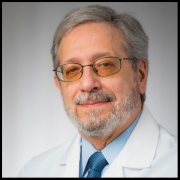 Kenneth V. Lieberman, MD
Kenneth V. Lieberman, MD
Chief, Section of Pediatric Nephrology
Joseph M Sanzari Children’s Hospital
Hackensack University Medical Center
Professor of Pediatrics, Hackensack Meridian School of Medicine
Kenneth V. Lieberman, MD, graduated from the Bronx High School of Science, Princeton University, and the Albert Einstein College of Medicine. He then completed a residency in Pediatrics at the Mount Sinai Medical Center and a fellowship in Pediatric Nephrology at Cornell University Medical Center/New York Hospital. He is the founding chief of the sections of Pediatric Nephrology at Mount Sinai Medical Center and then at the Hackensack University Medical Center which is his current position. He is currently a professor of Pediatrics at the Hackensack Meridian School of Medicine where he directs the integrated Kidney course. Dr. Lieberman is featured in many national “Best Doctor” databases, has received many awards for teaching excellence, and is a recipient of the National Medical Award from the Kidney and Urology Foundation of America as well as recognized by the National Kidney Foundation as an Excellence in Care Hero. He has been instrumental in pioneering treatments for nephrotic syndrome and complement mediated kidney disorders. He has extensively published, widely lectured, conducted clinical trials, and served on many advisory committees for these entities. He serves in various roles with a number of patient advocacy organizations including Nephcure, the National Organization of Rare Diseases, the aHUS Foundation, the Alport Syndrome Foundation and the Kidney and Urology Foundation of America.

Abhay Lodha, MSc, MBBS, MD, DM, FRCPCH (UK), FRCPC (Pediatrics), FRCPC (NPM)
Professor, Department of Pediatrics & Community Health Sciences
Scientific Chair, The American Academy of Pediatrics, SONPM, District 8
Cumming School of Medicine, University of Calgary
Foothills Medical Centre, Calgary, Canada
Abhay Lodha, MSc, MBBS, MD, DM, FRCPC, is a Professor of Pediatrics and Community Health Sciences in the Cumming School of Medicine at the University of Calgary, Canada. He is the Chair of Continuing Medical Education in the Section of Neonatology and a member of the Alberta Children’s Hospital Research Institute at the University of Calgary. He serves as the Scientific Chair of the American Academy of Pediatrics, Section of Neonatal-Perinatal Medicine, District 8. In addition, he is the Director of the Canadian Neonatal Foundation. He is also a Regional Adviser for Northern and Western Canada, Royal College of Physicians of Edinburgh.
His goal is to improve the outcomes of vulnerable NICU babies. His research has encompassed various aspects of Perinatal Epidemiology, Neonatology, Prematurity, neurodevelopmental outcomes, and patient-oriented health outcome research. He has participated in multi-site clinical trials serving as the Principal Investigator at the Foothills Medical Centre, evaluating growth and long-term neurodevelopmental outcomes in extremely preterm infants. He served on an editorial board as an Associate Editor of the Canadian Pediatric Society official Journal “Paediatric & Child Health” and the “BMC Pediatric” Journal.
Dr. Lodha attended medical school and completed a Pediatric Residency at RNT Medical College, Udaipur, University of Rajasthan, India. He completed his Neonatology residency at LTM Medical College, University of Mumbai, India. He was the first student who earned a DM degree in Neonatology from the University of Mumbai, India. He then went on for advanced training in neonatology to Australia at the Mercy Hospital for Women, University of Melbourne. Dr. Lodha moved to Canada in 2000, was able to complete a three-year fellowship in Neonatal-perinatal Medicine at the Hospital for Sick Children in Toronto, and completed a Master’s in Clinical Epidemiology & Biostatistics from the University of Toronto. In 2005, Dr. Lodha became an Assistant professor in the Department of Pediatrics, Cumming School of Medicine at the University of Calgary and a Staff Neonatologist at the Foothills Medical Centre in Calgary. He is a fellow of the Royal College of Physicians & Surgeons of Canada in Pediatrics and Neonatal-Perinatal Medicine, Royal College of Physicians of Edinburgh, Royal College of Physicians of Ireland, Royal College of Paediatric & Child Health (UK), Fellow of National Neonatology Forum India and The Royal Society of Medicine, London.
 David M. Maahs, MD, PhD
David M. Maahs, MD, PhD
Professor of Pediatrics
Stanford University School of Medicine
David M. Maahs, MD, PhD, is the Lucile Salter Packard Professor of Pediatrics, Division Chief of Pediatric Endocrinology, and Associate Chair for Academic Affairs in Pediatrics at Stanford University and the Lucile Packard Children’s Hospital. He earned his MD followed by Pediatric Residency at the University of New Mexico. After 3 years on New Mexico’s faculty, Dr. Maahs completed a Pediatric Endocrinology fellowship and a concurrent PhD in Epidemiology at the University of Colorado. He remained on Colorado’s faculty for 10 years, advancing to Professor of Pediatrics before moving to Stanford. Prior to his medical career, Dr. Maahs received a BA and MA in English from the University of Kansas and was inspired to pursue a medical career after serving in the Peace Corps with assignments in Tunisia and the Central African Republic.
His scholarly interest is improving care and preventing complications in people with type 1 diabetes (T1D). Along with Dr Peter Chase, he is author of the 12th and 13th editions of Understanding Diabetes, or ‘Pink Panther,’ which are the most widely used educational books for children newly diagnosed with T1D, distributed internationally by the Juvenile Diabetes Research Fund (JDRF). More specifically, he has conducted epidemiologic studies that help generate hypotheses for clinical studies, including trials to develop artificial pancreas systems to improve glucose control, lower disease burden, prevent the complications of diabetes, and reduce disparities in diabetes care. He is author or co-author of over 350 research publications. His multi-disciplinary research has been funded by the JDRF, the National Institutes of Diabetes and Digestive and Kidney Diseases (NIDDK), the Helmsley Charitable Trust, and the National Science Foundation (NSF).
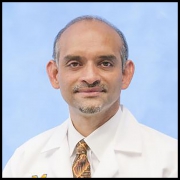 Prashant Mahajan, MD, MPH, MBA
Prashant Mahajan, MD, MPH, MBA
Professor and Vice-Chair, Department of Emergency Medicine
Professor, Pediatric Emergency Medicine
Division Chief, Pediatric Emergency Medicine
Professor, Department of Pediatrics
University of Michigan School of Medicine
Prashant Mahajan, MD, MPH, MBA, is a certified in pediatrics and pediatric emergency medicine. In addition, he has a Master’s in Public Health (Health Administration and Policy) and a Master’s in Business Administration. He is currently the Chair, Section of Emergency Medicine, for the American Academy of Pediatrics. His research interests are in infection/inflammation and in the area of clinician diagnostic decision making. He has been serially funded by NIH for the evaluation of the febrile infant with the use of novel RNA expression analysis using microarrays to define bacterial and non-bacterial biosignatures. He is involved in patient safety and quality and is funded by AHRQ on the study of diagnostic errors in the pediatric emergency setting.
 Katherine E. Mason, MD
Katherine E. Mason, MD
Vice Chair of Education, Department of Pediatrics
Associate Professor of Pediatrics
Brown University
Hasbro Children’s Hospital
Katherine E. Mason, MD, is the Vice chair of Education for the Department of Pediatrics and an Associate Professor of Pediatric Critical Care and Pediatrics at Hasbro Children’s Hospital and the Warren Alpert School of Medicine at Brown University. Her research has focused primarily on developing best practices in Medical Education, e.g. Learner Assessment, Professionalism and Faculty Development and Advocacy for Clinician Educators. She has also published in the fields of critical care and disaster medicine.
Dr. Mason further contributes to medical education initiatives through her national leadership roles in medical education as a past chair of the Fellowship Executive Committee and is currently a co-Leader of the Vice Chairs Executive Committee of the Association of Pediatric Program Directors, and as a National Mentor through the New Century Scholars’ Program and the Educational Scholars’ Program, both of the Academic Pediatric Association. She was recently honored for her lifetime contributions as a national leader and mentor in medical education through receipt of the Robert S. Holm Leadership Award of the Association of Pediatric Program Directors.
Dr. Mason completed her undergraduate studies in Biomedical Ethics and Biology at Brown University, and her Medical Degree at Alpert Medical School of Brown University. She did her Pediatric Residency, Chief Residency, and Critical Care Fellowship at Case Western Reserve University and Rainbow Babies and Children’s Hospital.
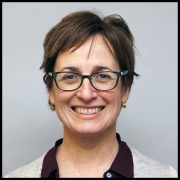 Elisabeth C. McGowan, MD
Elisabeth C. McGowan, MD
Associate Professor of Pediatrics
Alpert Medical School of Brown University
Neonatologist
Department of Pediatrics
Women & Infants Hospital of Rhode Island
Elisabeth C. McGowan, MD, has been an active participant in Follow Up and multi-center clinical trials throughout her career. After completion of fellowship training at Women & Infant’s Hospital (WIH) she worked at Tufts Floating Hospital as Director of the Tufts Neonatal Follow up Program. In 2014 she returned to WIH and has worked extensively in the WIH Follow Up Program. Dr. McGowan has participated in the NICHD Neonatal Research Network (NRN) since 2008, contributing to numerous peer-reviewed NR publications. She has been involved in several other NIH multi-site trials as site PI or Co-I, most recently as a site PI for a NIH Environmental Influences on Child Health Outcomes (ECHO) study investigating associations between neurobehavior and school age outcomes in very preterm infants. Both the longitudinal ECHO cohort and NRN studies allow Dr. McGowan to focus on her primary area of outcomes research, which includes sociodemographic and medical risks and their associations with neurobehavioral, cognitive, language and motor outcomes. Her local work at WIH addresses supporting high risk infants and families transition successfully from the NICU to home, with an emphasis on psychosocial support.
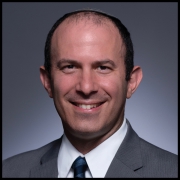 Joshua Milner, MD
Joshua Milner, MD
Professor of Pediatrics
Columbia University Medical Center
Joshua Milner, MD, is a Professor of Pediatrics in the Institute of Genomic Medicine and the Director of Allergy/Immunology and Rheumatology at Columbia University Irving Medical Center. His research centers around the genetics and immunopathology of inborn disorders of the immune system, with the ultimate goal of identifying pathways relevant for diagnosis and treatment of both rare and common allergic and immunologic diseases. His particular focus is on monogenic causes of allergic disease, a class of disorders now referred to as Primary Atopic Disorders. Previously, he was the Chief of the Laboratory of Allergic Diseases in the NIAID intramural research program at the NIH.
Dr. Milner is board-certified in allergy and immunology. He has been elected to the American Society for Clinical Investigation, the Association of American Physicians, and the Henry Kunkel Society. He has received two NIH Director’s Awards, four NIAID Merit Awards, the 2015 Phadia Allergy Research Forum Award, the 2017 Gale and Ira Drukier Prize in children’s health research, the Society for Pediatric Research’s 2019 E. Mead Johnson Award and the 2021 American Academy of Allergy Asthma and Immunology Foundation Heritage Lectureship. Dr. Milner earned a bachelor’s degree in biology from the Massachusetts Institute of Technology in 1995 and a medical degree from the Albert Einstein College of Medicine in 2000, with special distinction in immunology. He completed a residency in pediatrics at Children’s National Medical Center in Washington, D.C., followed by a fellowship in allergy and immunology at NIAID with the late William E. Paul.
 Megan A. Moreno, MD, MSEd, MPH
Megan A. Moreno, MD, MSEd, MPH
Professor of Pediatrics
Division Chief of General Pediatrics and Adolescent Medicine
University of Wisconsin-Madison
Megan A. Moreno, MD, MSEd, MPH, is a Professor of Pediatrics and Adjunct Professor of Educational Psychology at the University of Wisconsin-Madison. She is the Vice Chair of Academic Affairs for the Department of Pediatrics and Division Chief for General Pediatrics and Adolescent Medicine. Dr. Moreno is Principle Investigator of the Social Media and Adolescent Health Research Team (SMAHRT); her research focuses on the intersection of technology and adolescent health. Dr. Moreno is passionate about adolescent health and leveraging research findings for real-life impact for teens and their families. Dr. Moreno has authored over 100 research articles, she was a lead author on the American Academy of Pediatrics policy statement “Media Use Among School-aged Children and Adolescents”, and she has written and edited several books.
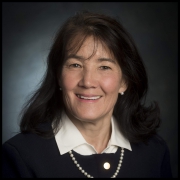
Michele Holloway Nichols, MD
University of Alabama at Birmingham, Department of Pediatrics
Professor of Pediatrics
Vice-Chair of Education
Director, Pediatric Residency Program
The Frederick W. Renneker, III, Endowed Chair in Pediatric Education
Michele Holloway Nichols, MD, is a Professor of Pediatrics at the University of Alabama at Birmingham (UAB). She initially attended Florida State University as a Dance Major, then transferred to Auburn University for undergraduate studies in Chemistry. Dr. Nichols then obtained her Medical Degree from the University of Alabama School of Medicine. She completed her Pediatric Residency and Pediatric Emergency Medicine Fellowship at Children’s Hospital Medical Center in Cincinnati. She is Board Certified in Pediatrics and in Pediatric Emergency Medicine. She is honored to serve as the UAB Department of Pediatrics Vice-Chair of Education, a Pediatric Emergency Medicine Attending at Children’s of Alabama, the Associate Medical Director of the Alabama Poison Information Center, and the Director of the UAB Pediatric Residency Program. She also served as the Pediatric Emergency Medicine Fellowship Director for many years. Dr. Nichols serves on the University of Alabama of Birmingham School of Medicine Admissions Committee and the UAB Graduate Medical Education Dean’s Council.
Dr. Nichols loves her clinical, teaching, and mentoring roles. She helps to lead the Pediatric Residency Program’s Coat of Arms (Community Outreach and Advocacy) program, the PRIME (Pediatric Residents interested in Medical Education) program, Pediatric RAP (Research Academic Program), and the Injury Prevention and Child Advocacy rotation. Dr. Nichols’ research interests include: injury, education, and toxicology. Dr. Nichols currently is a member of the American Academy of Pediatrics, Committee on Emergency Medicine and Council on Violence, Injury, and Poison Prevention Sections, the Academic Pediatric Association, the American Academy of Clinical Toxicology, the Southern Society for Pediatric Research, the Association of Pediatric Program Directors, and Injury Free Coalition for Kids.
Dr. Nichols is forever indebted to the many amazing role models, mentors, teachers, and colleagues, who have selflessly supported, encouraged, inspired, and guided her through her career. Her mission is to pay it forward and open the door to opportunities for others – students, residents, fellows, and colleagues.
 Michael A. O’Reilly, PhD
Michael A. O’Reilly, PhD
Professor of Pediatrics and of Environmental Medicine
The University of Rochester
Michael A. O’Reilly, PhD, is Professor of Pediatrics in the Division of Neonatology and in the Department of Environmental Medicine at the University of Rochester. He received a BS in Biology from SUNY Stony Brook and a PhD from the University of Cincinnati. He then completed two postdoctoral fellowships at the National Institutes of Health before moving to the University of Rochester where he is Director of the Lung Biology and Disease program and co-director of its Pulmonary T32 training grant. Dr. O’Reilly is also on the admissions committee for the Medical Scientist Training program and the Toxicology graduate program. He has mentored many junior faculty and graduate students, several who are now NIH funded investigators and research directors in industry. Dr. O’Reilly is broadly interested in understanding how high oxygen (hyperoxia) exposure in preterm infants alters their health later in life. His research with mouse models and banked human tissues investigates how neonatal hyperoxia disrupts alveolar epithelial development, enhances the severity of respiratory viral infections, and causes pulmonary vascular disease and diastolic heart failure later in life. Current efforts focus on understanding the molecular and cellular basis of these diseases in hopes that it will help predict risk and lead to new opportunities for improving health of people born preterm.
 Jennifer K. O’Toole, MD, MEd
Jennifer K. O’Toole, MD, MEd
Program Director, Internal Medicine-Pediatrics Residency Training Program
Professor of Pediatrics and Internal Medicine
University of Cincinnati College of Medicine | Cincinnati Children’s Hospital Medical Center
Jennifer K. O’Toole, MD, Med, is a pediatric and adult hospitalist at Cincinnati Children’s Hospital Medical Center (CCHMC) and University of Cincinnati Medical Center, and a Professor of Pediatrics and Internal Medicine at the University of Cincinnati College of Medicine (UCCOM). She holds a Master’s of Education in curriculum and instruction from the University of Cincinnati College of Education. Since 2017 she has served as Program Director of Cincinnati’s Internal Medicine and Pediatrics Residency Program, after having served as associate program director for nine years. In addition, she serves as program director of the IMSTAR Medical Education Fellowship within the Department of Internal Medicine at UCCOM and Co-President of the Women in Medicine and Science Organization at CCHMC. From 2015-2018 she served as co-chair of the APA’s Hospital Medicine Special Interest Group and was co-chair of the planning committee for the 2018 Pediatric Hospital Medicine Conference. In 2017 Dr. O’Toole was named a member of the inaugural Pediatric Hospital Medicine Sub-board of the American Board of Pediatrics. Since 2010 she has held the role of site principal investigator at Cincinnati Children’s for the I-PASS Study Group. She also serves as Chair of the ADVANCE PHM steering committee, and organization committed to achieving gender equity for women in pediatric hospital medicine. Dr. O’Toole has received the Emerging Leadership Award for an Individual from the AAMC’s Group on Women in Medicine and Science, the Society of Hospital Medicine’s (SHM) Award for Teaching Excellence (2018), the inaugural Med-Peds Program Director’s Brendan P. Kelly Award (2017), and the Cincinnati Children’s Faculty Education Achievement Award (2013). Her clinical and research interests include residency education, curriculum development and innovation, handoff communication, patient/family centered care, and achieving gender equity for women in medicine.
 Harpreet Pall, MD, MBA, CPE
Harpreet Pall, MD, MBA, CPE
Chair and Professor, Department of Pediatrics
Hackensack Meridian School of Medicine
Hackensack Meridian K. Hovnanian Children’s Hospital
Harpreet Pall, MD, MBA, CPE, is Chair and Professor of the Department of Pediatrics at Hackensack Meridian School of Medicine and K. Hovnanian Children’s Hospital at Jersey Shore University Medical Center. He completed his medical degree from McGill University and pediatrics residency from Memorial University in Canada. He then completed a fellowship in gastroenterology from Harvard Medical School/Boston Children’s Hospital. Following fellowship, Dr. Pall joined the faculty at Boston Children’s for six years where he led endoscopy services at ASCs and assisted in EHR implementation. In 2011, Dr. Pall was recruited to St. Christopher’s Hospital for Children/Drexel University College of Medicine as Chief of Gastroenterology where he served in numerous leadership roles including Executive Vice-Chair, President-Elect of the Medical Staff, and Pediatrician-in-Chief/Chair prior to assuming his current role at Hackensack Meridian Health.
Dr. Pall has formal management and leadership training including an MBA from University of Massachusetts, year-long leadership fellowship, medical management coursework at Harvard, a Dean’s internship at Drexel, and the Certified Physician Executive (CPE) designation. He serves on the Advisory Board of the Transformative Leadership in Disruptive Times certificate program at Seton Hall University Stillman School of Business.
Dr. Pall has been nationally recognized for his scholarship in health equity, social determinants of health, clinical efficiency, and patient experience as related to the field of pediatric endoscopy. During the COVID-19 pandemic, he served as Chair of the Hackensack Meridian Support our Schools COVID Advisory Board. This program helped support over 138 NJ schools as they navigated the pandemic. Dr. Pall is also the Chair of the Finance and Operations Committee of the Hackensack Meridian Health Medical Group. Finally, he enjoys his active clinical practice as a board-certified pediatric gastroenterologist.
 Shilpa J. Patel, MD
Shilpa J. Patel, MD
Pediatric Hospitalist, Kapi`olani Medical Center for Women & Children
Associate Chief Quality Officer, Hawai`i Pacific Health
Associate Professor, Pediatrics, University of Hawai`i John A. Burns School of Medicine
Shilpa J. Patel, MD, is a Pediatric Hospitalist at Kapiolani Medical Center for Women & Children in Honolulu, Hawaii. She is an Associate Professor of Pediatrics at the University of Hawai‘i John A. Burns School of Medicine and the Associate Chief Quality Officer for Hawai‘i Pacific Health, a four hospital system in Hawai‘i. Dr. Patel earned her Bachelor’s degree in Cognitive Science from Vassar College. She received her medical degree and completed her pediatric residency training at the University of Vermont College of Medicine. She is passionate about patient safety and quality improvement efforts that engage inter-professional stakeholders, structured communication, and improvement science.
 George A. Porter, Jr., MD, PhD
George A. Porter, Jr., MD, PhD
Rhea and Raymond White Professorship, Chief, and Fellowship Director in Pediatric Cardiology
University of Rochester Medical Center
George Porter received a BS in Biology at the University of Notre Dame and an MD and PhD in Physiology at the University of Maryland and completed his pediatric residency and pediatric cardiology fellowship at Yale University. He was an assistant professor at Yale and moved to the University of Rochester in 2008, where he is now the Rhea and Raymond White Professor of Pediatrics, Pharmacology and Physiology, and Medicine. His laboratory studies the role of bioenergetics and mitochondrial biology during cardiac development using mouse models and human genetic studies. He is also a member of the NIH-funded Pediatric Cardiac Genomics Consortium. He has been president of the Eastern Society for Pediatric Research and the Rochester affiliate of the American Heart Association, and he is currently a member of the Program Committee for the Pediatric Academic Societies.
 Martin V. Pusic, MD, PhD
Martin V. Pusic, MD, PhD
Senior Associate Faculty, Boston Children’s Hospital
Associate Professor of Pediatrics & Emergency Medicine, Harvard Medical School
Martin V. Pusic, MD, PhD, is a practicing Pediatric Emergency Medicine physician at the Boston Children’s Hospital, with an advanced interest in the science of learning as it applies to health professions education. A predominant model for his research involves the collection of clinical artefacts such as diagnostic images, programming of an educational intervention, and the subsequent collection and analysis of learning analytic data to nurture and certify expertise development.
Dr. Pusic is presently Co-Investigator of an American Medical Association (AMA) funded project within the 8-institution consortium entitled “Reimagining Residency”. The project involves competency-based advancement of residents in representative training programs at Mass-General Brigham. Previously, Dr. Pusic had been a co-investigator on another AMA grant at the UME level where the project involved the development of a novel “Big Data” curriculum. Dr. Pusic co-chaired the Evaluation Committee and the Master Adaptive Learner (MAL) Interest Group for that initiative and co-edited a book on the topic of MAL.
He obtained his medical degree from the University of British Columbia, a fellowship in pediatric emergency medicine at McGill, and his Masters (Informatics) and PhD (Human Cognition) from Columbia University. He is President-Elect of the Society of Directors of Research in Medical Education and is Co-Chair of the Royal College of Physicians and Surgeons of Canada Medical Education Research Grant Committee.
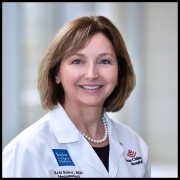 Kristina Reber, MD
Kristina Reber, MD
Division Chief, Neonatology
Professor of Pediatrics
Texas Children’s Hospital
Baylor College of Medicine
Kristina Reber, MD, is currently a Professor of Pediatrics and Division Chief of Neonatology at Baylor College of Medicine and Texas Children’s Hospital. Prior to her new position at Baylor/TCH, she was a Senior Vice-Chair of Pediatrics and Associate Division Chief of Neonatology at The Ohio State University College of Medicine and Nationwide Children’s Hospital. Dr. Reber spent the first part of her career as a NIH funded bench researcher studying the role of alterations in intestinal circulation and the association to Necrotizing Enterocolitis. She was part of the inaugural group of neonatologists to develop a national database, Children’s Hospital Neonatal Database and Consortium. This Consortium has grown from 8 hospitals in its infancy to over 40 hospitals that provide robust data and benchmarking for patients in quaternary, referral based Neonatal Intensive Care Units.
Dr. Reber is committed to fellow training and faculty development. She was the Neonatal-Perinatal Fellowship Director at Nationwide Children’s Hospital and served as the Chairperson for the Organization of Neonatal-Perinatal Training Programs through the American Academy of Pediatrics. She is currently on the Executive Committee of the Women in Neonatology through the American Academy of Pediatrics. This role has allowed her the opportunity to support women in career development within Pediatrics. She recognizes that it is a privilege to be elected to the American Pediatric Society and be included in a network of prestigious pediatric leaders!
 Michael J. Rock, MD
Michael J. Rock, MD
Professor of Pediatrics
University of Wisconsin School of Medicine and Public Health
Michael J. Rock, MD, completed a pediatric pulmonology fellowship at the University of Wisconsin-Madison from 1986 to 1989. During his fellowship, he became interested in the care of children with cystic fibrosis (CF) and became particularly involved with the Wisconsin Neonatal Screening Study. He was on the faculty of the University of Tennessee-Memphis for five and one-half years before returning to the University of Wisconsin in 1995. He was promoted to associate professor in 1997 and full professor in 2002.
He is director of the Cystic Fibrosis Center. Dr. Rock served on the Cystic Fibrosis Foundation Center Committee from 2000-2004. This committee, consisting of CF Center Directors, is charged with formulating policy decisions for the cae of CF patients in CF Centers and oversees centers through site visits.
 Robert D. Roghair, MD
Robert D. Roghair, MD
Professor of Pediatrics – Neonatology
University of Iowa, Carver College of Medicine
Robert D. Roghair, MD, received his medical degree from the University of Iowa. Following a pediatrics residency and neonatology fellowship enriched by research training with Drs. Jeffrey Segar and Thomas Scholz, he joined the University of Iowa faculty in 2005. At Iowa, he directed the Pediatrics Physician Scientist Training Pathway (PSTP) prior to his current position as Director of the Medical Student Research Programs, including research skill course instruction, coordination of student research opportunities and administration of the research distinction track. He continues to investigate the developmental origins of adult cardiovascular disease with emphasis on the effects of neonatal growth restriction on neuro-cardiovascular regulation and stress-exacerbated hypertension. He has increasingly focused on the translational implications of his research on the optimal provision of nutritional support for premature neonates.
 Glenn Rosenbluth, MD
Glenn Rosenbluth, MD
Clinical Professor of Pediatrics and Orofacial Sciences
Director of Quality and Safety Programs
UCSF Office of Graduate Medical Education
Glenn Rosenbluth, MD, is Clinical Professor of Pediatrics and Orofacial Sciences who specializes in caring for children with medical complexity. He works on the Pediatric Hospitalist team caring for hospitalized children with a wide range of conditions, as well as with the Craniofacial team, both inpatient and in clinic. Previously he served for 14 years as Associate Director of the UCSF Pediatrics Residency Program.
As Director of Quality and Safety Programs for the UCSF Office of Graduate Medical Education, Dr. Rosenbluth has a particular interest in understanding how to engage residents and fellows in hospital-wide quality and safety initiatives. He oversees a Resident and Fellow Quality Improvement Incentive Program which engages over 850 residents and fellows annually.
Dr. Rosenbluth has been involved in several research projects studying the interface between medical education and patient safety. He had a leadership role in the NIH-funded I-PASS study, which demonstrated significant reductions in medical errors and preventable adverse events after implementation of a handoff communication bundle, as well as that the PCORI-funded Patient and Family-Centered I-PASS Study which demonstrated improvements in patient safety with patient- and family-centered rounds. He currently is a mentor in the SHM I-PASS SCORE Study, which supports implementation of patient- and family-centered rounds at 21 institutions across the US. In addition, he is co-investigator on the Family Input for Quality and Safety study, which a mobile-technology approach to allow patients and families to report safety and quality concerns during hospitalizations.
Dr. Rosenbluth completed medical school at the Weill Medical College of Cornell University. He completed residency and chief residency in pediatrics at UCSF. In addition, he has completed a Fellowship in Hospital Medicine through the UCSF Department of Medicine, the UCSF Teaching Scholars Program, and the Intermountain Healthcare Advanced Training Program. He is currently enrolled in the Academic Pediatrics Association’s Advancing Pediatric Leaders program.
 Paul J. Rozance, MD
Paul J. Rozance, MD
The Frederick C. Battaglia Chair in Neonatology Research
Professor of Pediatrics, Neonatal Medicine
University of Colorado School of Medicine
Dr. Rozance is a Professor at the University of Colorado School of Medicine in the Section of Neonatology and is currently the Frederick Battaglia Chair in Neonatology Research. His laboratory focuses on fetal nutrient and oxygen physiology, fetal endocrinology, fetal growth and development, pancreatic beta-cell biology, and placental function. His research goals include developing a better understanding how the fetus translates nutrient signals from the placental into anabolic signals for growth, specifically insulin secretion. These translational studies revolve around the broad area of perinatal insulin-nutrient metabolism and have led to his clinical interest in glucose metabolism during the transition from intrauterine to extrauterine life.

Janine Sanchez, MD
Associate Professor of Pediatrics
Director, Pediatric Diabetes
University of Miami Miller School of Medicine
Janine Sanchez, MD, is the Director of Pediatric Diabetes at the University of Miami Miller School of Medicine. She is on the Clinical Leadership Committee of Type 1 Diabetes Exchange Quality Improvement Collaborative. She has given national and international presentations on diabetes, including Diabetes Care, Health Inequities, Telemedicine, and COVID-19. Dr. Sanchez was Regional Director of the State of Florida’s Children’s Medical Services program in Pediatric Endocrinology (Diabetes Management Program and Newborn Screening Program). She has contributed significantly to research in pediatric endocrinology as both senior investigator and collaborator in numerous studies. She has participated in NIH-funded studies in the prevention of diabetes in high-risk patients, pharmaceutical trials, psychological interventions to improve diabetes care, national QI projects in the management of patients with diabetes, treatment of neonatal diabetes, and management of children with diabetes in school settings. Dr. Sanchez has a continuing interest in the investigation of health inequality in diabetes care.
 Lee M. Sanders, MD, MPH
Lee M. Sanders, MD, MPH
Associate Professor
Chief, Division of General Pediatrics
Stanford University School of Medicine
Lee M. Sanders, MD, MPH, is a general pediatrician and Associate Professor of Pediatrics at the Stanford University School of Medicine, where he is Chief of the Division of General Pediatrics. He holds a joint appointment in the Center for Health Policy in the Freeman Spogli Institute for International Studies, where he is a co-director of the Center for Policy, Outcomes and Prevention (CPOP).
An author of numerous peer-reviewed articles addressing child health disparities, Dr. Sanders is a nationally recognized scholar in the fields of health literacy and child chronic-illness care. Dr. Sanders was named a Robert Wood Johnson Foundation Generalist Physician Faculty Scholar for his leadership on the role of maternal health literacy and English-language proficiency in addressing child health disparities. Aiming to make the US health system more navigable for the one in 4 families with limited health literacy, he has served as an advisor to the Institute of Medicine, the Centers for Disease Control and Prevention, the Food and Drug Administration, the American Academy of Pediatrics, the Academic Pediatric Association, and the American Cancer Society. Dr. Sanders leads a multi-disciplinary CPOP research team that provides analytic guidance to national and state policies affecting children with complex chronic illness – with a focus on the special health-system requirements that arise from the unique epidemiology, care-use patterns, and health-care costs for this population. He leads another CPOP/PCOR-based research team that applies family-centered approaches to new technologies that aim to improve care coordination for children with medical complexity. Dr. Sanders is also principal investigator on two NIH-funded studies that address health literacy in the pediatric context: one aims to assess the efficacy of a low-literacy, early-childhood intervention designed to prevent early childhood obesity; the other aims to provide the FDA with guidance on improved labeling of pediatric liquid medication. Research settings for this work include state and regional health departments, primary-care and subspecialty-care clinics, community-health centers, WIC offices, federally subsidized child-care centers, and family advocacy centers.
 Erin Shaughnessy, MD, MSHCM
Erin Shaughnessy, MD, MSHCM
Vice Chair of Clinical Affairs
Department of Pediatrics
University of Alabama at Birmingham
Erin Shaughnessy, MD, MSHCM, is the Director of Pediatric Hospital Medicine and Vice Chair of Clinical Affairs in the UAB Department of Pediatrics. She completed medical school at Duke University School of Medicine and residency in pediatrics at Cincinnati Children’s Hospital Medical Center. She is board-certified in Pediatrics and Pediatric Hospital Medicine. She holds a Master of Science degree in Health Care Management from Harvard T. H. Chan School of Public Health. Prior to joining UAB in Sept 2020, Dr. Shaughnessy was Division Director of Pediatric Hospital Medicine at Phoenix Children’s Hospital. Dr. Shaughnessy holds several national leadership positions in Pediatric Hospital Medicine, including representative in the Council on Pediatric Subspecialties, Steering Committee member of Advance PHM, and Deputy Editor of Reviews and Perspectives at the Journal of Hospital Medicine. Dr. Shaughnessy’s areas of expertise include patient safety and quality improvement as well as evidence-based guideline development.
 Tarak Srivastava, MD, FASN
Tarak Srivastava, MD, FASN
Professor of Pediatrics, University of Missouri at Kansas City
Attending Nephrologist, Children’s Mercy Hospital
Tarak Srivastava, MD, FASN, is a Pediatric Nephrologist at the Children’s Mercy Hospital, University of Missouri at Kansas City. Dr. Srivastava graduated from Seth GS Medical College, Mumbai, India. He did his Pediatric Residency from Seth GS Medical College & KEM Hospital, Mumbai, India, and his Pediatric Nephrology Fellowship at Sydney Children’s Hospital, Sydney, Australia. He completed his second Pediatric Residency and Pediatric Nephrology Fellowship at Children Mercy Hospital, Kansas City, USA. His laboratory research interest is in podocyte biology in health and disease, and in progression of chronic kidney disease. His clinical research interest is in Nephrotic Syndrome and in Metabolic Bone Disease. He is the Director of the Nephrology Research Laboratory and Director of the Osteogenesis Imperfecta Program at Children Mercy Hospital.

Michael Steiner, MD, MPH
Professor of Pediatrics
University of North Carolina School of Medicine
Michael Steiner, MD, MPH is a Professor of Pediatrics at the University of North Carolina School of Medicine. He serves as the Pediatrician in Chief for UNC Children’s and Vice-Chair of Clinical Affairs within the Department. He also serves as the Division Chief for General Pediatrics and Adolescent Medicine and holds the Michael F. Durfee Distinguished Professorship in General Pediatrics and Adolescent Medicine. In the university and health system, Dr. Steiner serves as the Associate Dean of Outreach Initiatives facilitating a statewide collaboration between the School and another regional healthcare system and as the Medical Director of Children’s Population Health in the clinically integrated network. Nationally, he was recently elected Secretary/Treasurer of the Academic Pediatrics Association.
Dr. Steiner grew up in Syracuse, NY, attended Albright College in Reading, PA followed by Temple University in Philadelphia for medical school. He completed the combined Pediatrics and Internal Medicine residency training at the University of North Carolina and afterwards served as a Chief Resident in Pediatrics. After residency, he completed a Masters in Public Health in Public Health Leadership at the Gillings Global School of Public Health at UNC. Early in his career, he worked in the National Health Service Corps followed by a brief period at Children’s Hospital Los Angeles before returning to UNC for the past 15 years. In addition to General Pediatrics, he also is board certified in Pediatric Hospital Medicine and clinically works in inpatient and outpatient settings.
Dr. Steiner’s academic and research interests have been focused on children with medical complexity particularly related to systems of care and social factors impacting health outcomes. Other research interests include quality improvement and other issues in general and hospital pediatrics. Those scholarly interests recently created an opportunity to help lead a Centers for Medicare and Medicaid Services Innovation Center pilot through which Duke University, UNC and state Medicaid are redesigning care and payment models for children insured by Medicaid.
 Alexis A. Thompson, MD, MPH
Alexis A. Thompson, MD, MPH
Sarah and A. Watson Armour Chair in Childhood Cancer and Blood Disorders
Hematology Section Head
Ann & Robert H. Lurie Children’s Hospital of Chicago
Professor of Pediatrics
Feinberg School of Medicine, Northwestern University
Alexis A. Thompson, MD, MPH, is currently the Hematology Section Head at Ann and Robert H. Lurie Children’s Hospital of Chicago in Chicago, Illinois. She holds the A. Watson and Sarah Armour Endowed Chair for Blood Diseases and Cancer at Lurie Children’s. She is also a Professor of Pediatrics at the Northwestern University Feinberg School of Medicine. Dr. Thompson is also the Associate Director for Equity and Minority Health at the Robert H. Lurie Cancer Center and Northwestern University Feinberg School of Medicine. She has served on regional and national on advisory committees for governmental agencies as well as non-profit organizations focused on improving healthcare access, increasing workforce diversity, and reducing health disparities. In 2018, she was President of the American Society of Hematology.
In her current position, she is an investigator on multi-center trials and as well as her own institutional clinical studies in thalassemia, sickle cell disease and ITP. Her most significant scientific contributions are clinical and translation studies to better understand and treat hemoglobinopathies. She has been a leader in multicenter collaborations, such as the NHLBI-funded Thalassemia Clinical Research Network and the Sickle Cell Disease Implementation Consortium.
Her clinical interests include hemoglobinopathies (thalassemia and sickle cell disease), bone marrow failure syndromes and stem cell transplantation in pediatric patients.
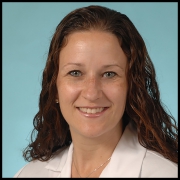 Jennifer A. Wambach, MD, MS
Jennifer A. Wambach, MD, MS
Associate Professor of Pediatrics
Washington University School of Medicine in St. Louis
Jennifer Wambach, MD, MS, is an Associate Professor of Pediatrics at Washington University School of Medicine (WUSM). Dr. Wambach completed her undergraduate and medical degrees at Vanderbilt University and her pediatric residency and chief residency at Children’s Memorial Hospital, Northwestern University School of Medicine. She completed her fellowship in neonatal perinatal medicine and master’s degree in genetic epidemiology at WUSM. Since 2018 she has served as the co-program director of the neonatal perinatal medicine fellowship program at WUSM/St. Louis Children’s Hospital.
Dr. Wambach’s research goals are to understand the disease mechanisms of rare neonatal and pediatric developmental lung disorders, to identify pharmacologic strategies for treatment of these disorders that are often fatal without lung transplant, and to use genomic and transcriptomic technologies to identify the genetic etiology of birth defects and rare phenotypes among infants and children. Dr. Wambach is a member of the Society for Pediatric Research, the American Thoracic Society, the Childhood and Diffuse Lung Disease Research Network, and the Association of Pediatric Program Directors. She has received funding from the National Institutes of Health, the American Lung Association, the American Thoracic Society, and the Children’s Discovery Institute.

Zachary Warren, PhD
Professor of Pediatrics, Psychiatry and Behavioral Sciences, & Special Education
Vanderbilt University Medical Center
Executive Director, Treatment and Research Institute for Autism Spectrum Disorders (TRIAD)
Zachary Warren, PhD, received a PhD in Clinical Psychology in 2005 from the University of Miami and is currently a Professor of Pediatrics, Psychiatry and Behavioral Sciences, and Special Education at Vanderbilt University Medical Center (VUMC). He is the Endowed Executive Director of the Vanderbilt Kennedy Center’s (VKC) Treatment and Research Institute on Autism Spectrum Disorders (TRIAD) and the Director of the Division of Developmental Medicine at Vanderbilt Children’s Hospital. His current research focuses on early detection and intervention for ASD as well as in the application of telehealth as well as intelligent technologies for enhanced identification and service. Dr. Warren has received funding and support from AHRQ, Autism Speaks, CDC, HRSA/MCH, NICHD, NIMH, NSF, the Simons Foundation, and other agencies. He is seen as a national and international leader regarding ASD screening/diagnosis and treatment. Dr. Warren also oversees the large professional development structures that are part of TRIAD which are funded to provide evidence-based training for ASD service and professional capacity building across the state of Tennessee through the Department of Education, Department of Intellectual and Developmental Disabilities, the Tennessee Early Intervention System (TEIS), and affiliated pediatric care settings.
 Stuart A Weinzimer, MD
Stuart A Weinzimer, MD
Professor of Pediatrics
Yale University School of Medicine
Clinical Professor, Yale School of Nursing
Stuart A Weinzimer MD, is Professor of Pediatrics at the Yale University School of Medicine, Clinical Professor at the Yale School of Nursing, and Attending Pediatric Endocrinologist at the Yale-New Haven Children’s Hospital. He graduated summa cum laude from Yale University with a bachelor’s degree in Molecular Biochemistry and Biophysics, earned his medical degree at the Albert Einstein College of Medicine, and completed pediatric residency and pediatric endocrinology fellowship training at the Children’s Hospital of Philadelphia. His primary research and clinical interests have focused on the development, evaluation, and implementation of advanced diabetes technologies to improve metabolic control in people with diabetes. He is also studying the metabolic, hormonal, and behavioral implications of affirming therapies for transgender and gender-expansive youth. When he is not working, he may usually be found close to a piano.
 Derek Williams, MD, MPH
Derek Williams, MD, MPH
Associate Professor of Pediatrics
Vanderbilt University School of Medicine
Derek Williams, MD, MPH, is Associate Professor of Pediatrics and Chief of the Division of Hospital Medicine at Vanderbilt University School of Medicine and the Monroe Carell Jr. Children’s Hospital at Vanderbilt. Dr. Williams is a clinical and health services researcher with a federally-funded research program centered on improving care delivery and outcomes for children with pneumonia and other acute respiratory illnesses. He has authored >100 peer-reviewed publications, and he has received awards recognizing his scientific contributions from the Academic Pediatric Association, the Infectious Diseases Society of America/Pediatric Infectious Diseases Society, the American Academy of Pediatrics, and the Society of Hospital Medicine. Dr. Williams is also a member of the Executive Council of the Pediatric Research in Inpatient Settings (PRIS) Network.
 Larry Yin, MD, MSPH
Larry Yin, MD, MSPH
Associate Professor, Clinical Pediatrics
Keck School of Medicine of University of Southern California
Adjunct Associate Professor, Occupational Science/Therapy
Herman Ostrow School of Dentistry
University of Southern California
Larry Yin, MD, MSPH, serves as Division Head of General Pediatrics at Children’s Hospital Los Angeles and Director of the USC University Center of Excellence in Developmental Disabilities at CHLA. He oversees the Division’s strategic planning, recruitment, and program development; ensures the integration of training and research programs within clinical services throughout the hospital and community; and supports academic goals in research, education, and child advocacy.
Dr. Yin obtained an undergraduate degree from the University of California, Riverside, his Medical Doctorate from Saint Louis University School of Medicine, and a Master of Science in Public Health degree from the UCLA Fielding School of Public Health. Board-certified in general pediatrics and developmental-behavioral pediatrics, Dr. Yin has devoted a large portion of his career to caring and improving outcomes for children with neurodevelopmental disorders and special health care needs. He has authored, co-authored, and contributed to hundreds of publications, abstracts and presentations on developmental disabilities, autism spectrum disorder, pediatric obesity, and health disparities in underserved populations. Dr. Yin’s research and academic interests have been funded by the National Institutes of Health, the Centers for Disease Control and Prevention, the Administration for Community Living, and the U.S. Health Resources & Services Administration.
